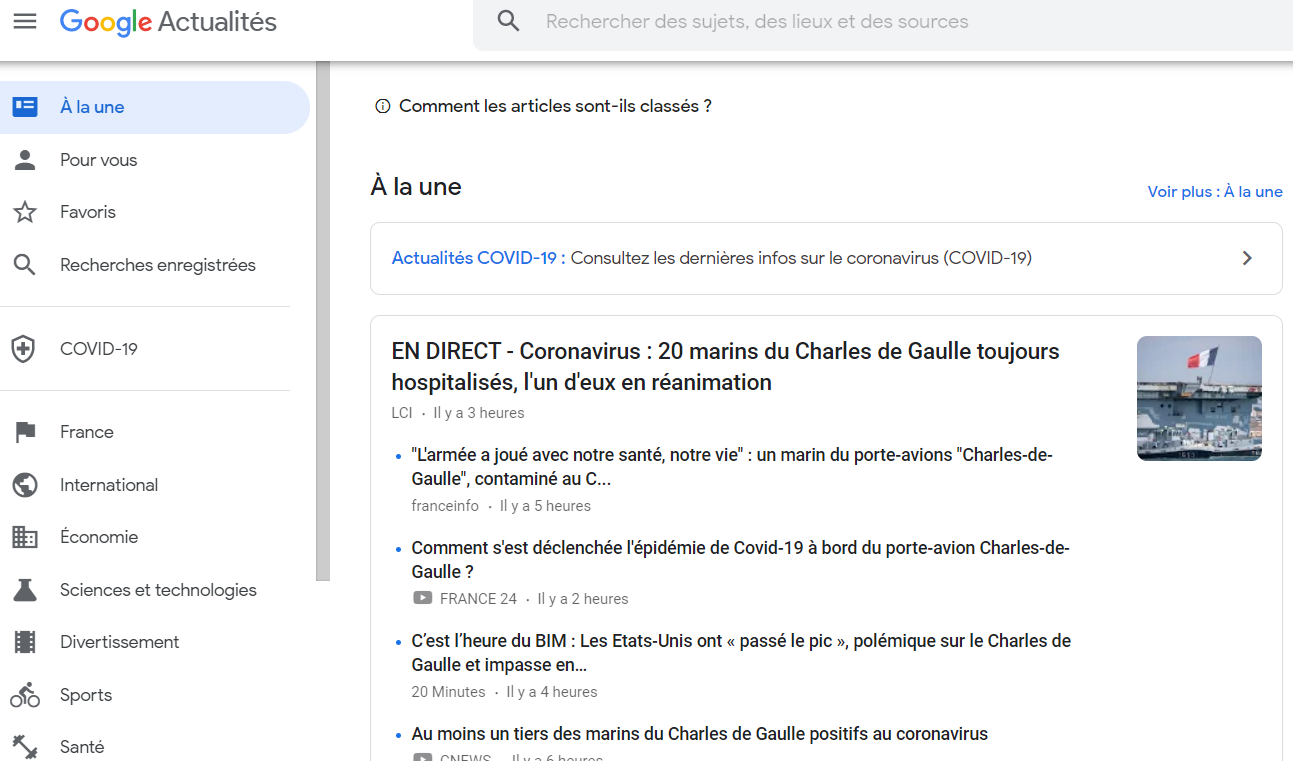
A French ruling compelling Google to negotiate with publishers over payments for their content should be a cause of celebration for news organisations worldwide.
This is the view of VG Media, a body which collects copyright payments on behalf of hundreds of German media companies and is fighting for a similar deal in that country.
On Thursday, France’s competition authority ordered the search engine giant to negotiate with publishers over payment terms for the use of their content in both Google News and search engine results.
The move follows European copyright reform which last year strengthened the rights of news publishers to enforce their copyright.
France extended the rights of publishers in October 2019 with the result that Google changed the way it displays search results in France: switching to showing headlines and URLs only, but not article snippets.
Now French authorities have said that Google is abusing its dominant market position and must instead negotiate with French publishers to fairly remunerate them for the use of their content.
A previous attempt by Spain to make Google payments to publishers mandatory resulted in the search giant closing down its Google News service in the country.
Google’s vice president for news Richard Gingras said: “Since the European Copyright law came into force in France last year, we have been engaging with publishers to increase our support and investment in news.
“We will comply with the FCA’s order while we review it and continue those negotiations.”
Here head of international business strategy for VG Media Andrew Hughes writes exclusively for Press Gazette:
Last October France was the first EC country to roll out a new EC law designed to ensure platforms pay for news publishers’ content.
The French competition authorities – the ‘Autorite de la Concurrence’- found that Google’s response in presenting French publishers with an ultimatum – ‘give us a free licence or get a weaker listing’ – was an abuse of a dominant position.
They have given Google three months to reach a deal, and required them to disclose all relevant data to publishers and also report every four weeks on progress. They reserve their rights to intervene directly. In short, stand and deliver. Or else.
Sounds great – if you are a French publisher. But does it matter to the rest of us? It does, for a number of reasons.
It sets a precedent at several levels. The most important is that Google are subject to the law (which may sound obvious, but is not always reflected in their behaviour).
It establishes an evidence-based benchmark competition law ruling, which is bound to influence other countries in Europe and beyond. It will give a significant boost to other European countries as they implement the new EC rules.
Without this competition law protection the market leverage of Google (which has over 90 per cent of the European search market) could subvert new rights. With it, press and legislators will be encouraged to take the opportunity.
It’s hard to say exactly what a licence is worth, in France and elsewhere. Google is a $136bn monster globally, with Europe a large share of that.
Professionally-produced news is typically the most valuable content in search.
Royalty rates on news on other professional services start at 20 per cent.
Google also gets value from the news database it creates in many other ways.
The experts and the negotiators will have their say as a number is reached but – in France at least, and I would expect elsewhere – the process will soon be a legal process, rather than a fragmented and challenged press trying to deal with self-serving edicts from California.
And the French are not alone.
My employer VG Media has been fighting this fight in Germany for some time.
Across Europe the new European Copyright rules are coming on stream. US publishers are mobilising.
In the UK we wait for the (admittedly rather busy) government to find time to ensure the Cairncross Review report (which also seeks to integrate competition law and licensing) is put into effect. The Australian’s ACCC has just announced a series of recommended measures to reign in the platforms.
It can’t come soon enough.
The current crisis has underlined the crucial importance of a free and vibrant press when information and accountability are badly needed.
At the same time it has kicked away the options for funding it.
Facebook and Google have each recently thrown publishers a bone.
The Google ‘Journalism Emergency Relief Fund’ is welcome, but “funding amounts will range from the low thousands for small hyper-local newsrooms to low tens of thousands for larger newsrooms, with variations per region” won’t go far.
Compare and contrast with the $136bn gross income, much of which is a transfer of advertising revenue from the publishers.
So publishers across Europe and elsewhere should raise a glass to the ‘Autorite de la Concurrence’. “This is an important step toward the effective enforcement of the publishers’ neighboring right,” said France’s Culture Minister Franck Riester.
“Some people wanted this right to remain a dead letter. They made a mistake,” he added. We concur.
Email pged@pressgazette.co.uk to point out mistakes, provide story tips or send in a letter for publication on our "Letters Page" blog
